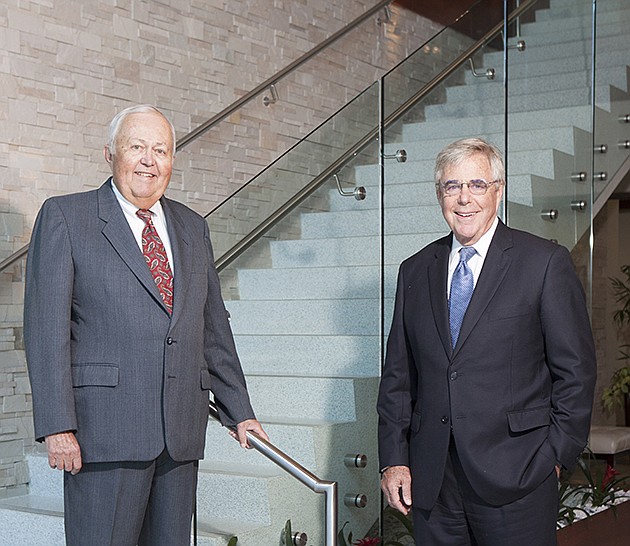- July 26, 2024
-
-
Loading

Loading

With more than 3,000 miles separating them, it was unlikely Burton Wiand and Cameron Stout would ever cross paths.
Yet it happened nearly 20 years ago. Wiand, a longtime Florida attorney, represented a brokerage client locally in an arbitration case. Stout, who has always practiced law in northern California, represented the firm at the corporate level. “We were lucky enough to get a win out of it, but even luckier because it turned into a lifelong friendship,” says Stout.
Earlier this year the pair turned the friendship into a business, with a venture that aims to capitalize on the growing court mediation and arbitration field.
A former U.S. Securities and Exchange Commission prosecutor who has played a role in several high-profile Ponzi scheme cases, Wiand was ready to expand his Tampa firm of Wiand Guerra King. He recruited Stout, of Holland & Knight's San Francisco office, to bring those services to both coasts.
The new group is called WGK-ADR, incorporating Wiand's firm with ADR, or alternative dispute resolution. Although mediation and arbitration are hardly new in Florida, the growth in mediation cases from beyond family and simple civil cases have produced such high workloads that more mediators are desperately needed.
Besides himself and Stout, the group includes another longtime securities attorney, Don Cox, in addition to Reece Bader, a former law clerk for the late U.S. Supreme Court Justice Warren Burger.
A move to incorporate mediation into the practice is somewhat counterintuitive for an attorney like Wiand, the son of a high-ranking FBI official. He's used to pounding away at the opposition, not finding a compromise that suits both sides. But the experience the attorneys bring could be an asset.
“By having people who have been in the trenches for 35 to 40 years, we can bring a lot of insight to both parties when they sit down to resolve those issues,” Wiand says.
The concept of alternative dispute resolution got its start in Florida more than 40 years ago, but only in recent years have judges leaned toward mediation to help control caseloads.
Circuit court judges ordered 108,200 cases to mediation between 2013 and 2014, according to the Office of the State Courts Administrator. The Florida Supreme Court certifies mediators, and nearly 6,000 are currently active.
Although a large percentage of mediation cases are through family law and small claims, WGK-ADR is focused more on complex business cases. While Florida courts don't break out statistics for those cases specifically, 2% of mediations in 2013-14 were ordered for civil cases that were not small claims, family court or evictions — a little more than 2,100.
To Wiand, that's opportunity. “There are a lot of mediators out there right now who do all of this, but they are very busy,” Wiand says. “If you want to use them, it's difficult sometimes to get on their dance card.”
Stout will handle many cases in Silicon Valley, such as disputes between smartphone app programmers and the entrepreneurs who hire them. Burton, Cox and Reese will stay focused in Florida, primarily on the Gulf Coast, including securities disputes.
“We know this will grow, and doing mediations will be a revenue-generator for the firm,” Wiand says. “But it's also something we're able to offer some significant talents toward, and if that can help save everyone money and time, even better for us.”
Follow Michael Hinman on Twitter @BizTampaBay